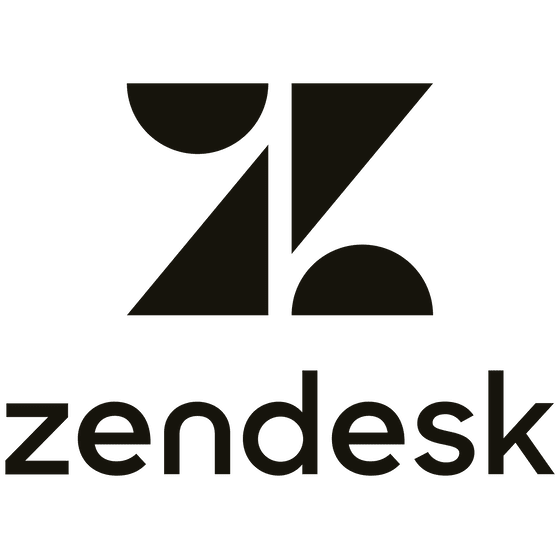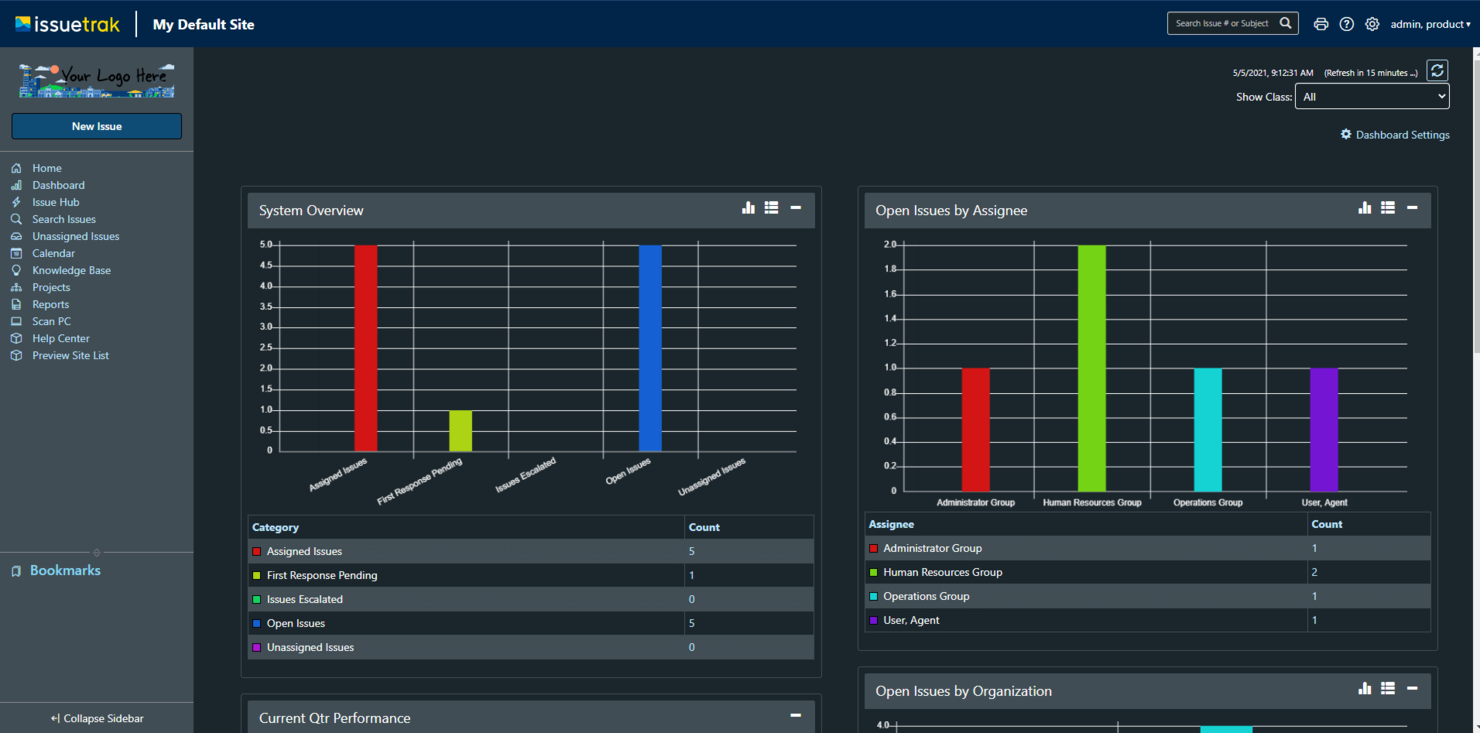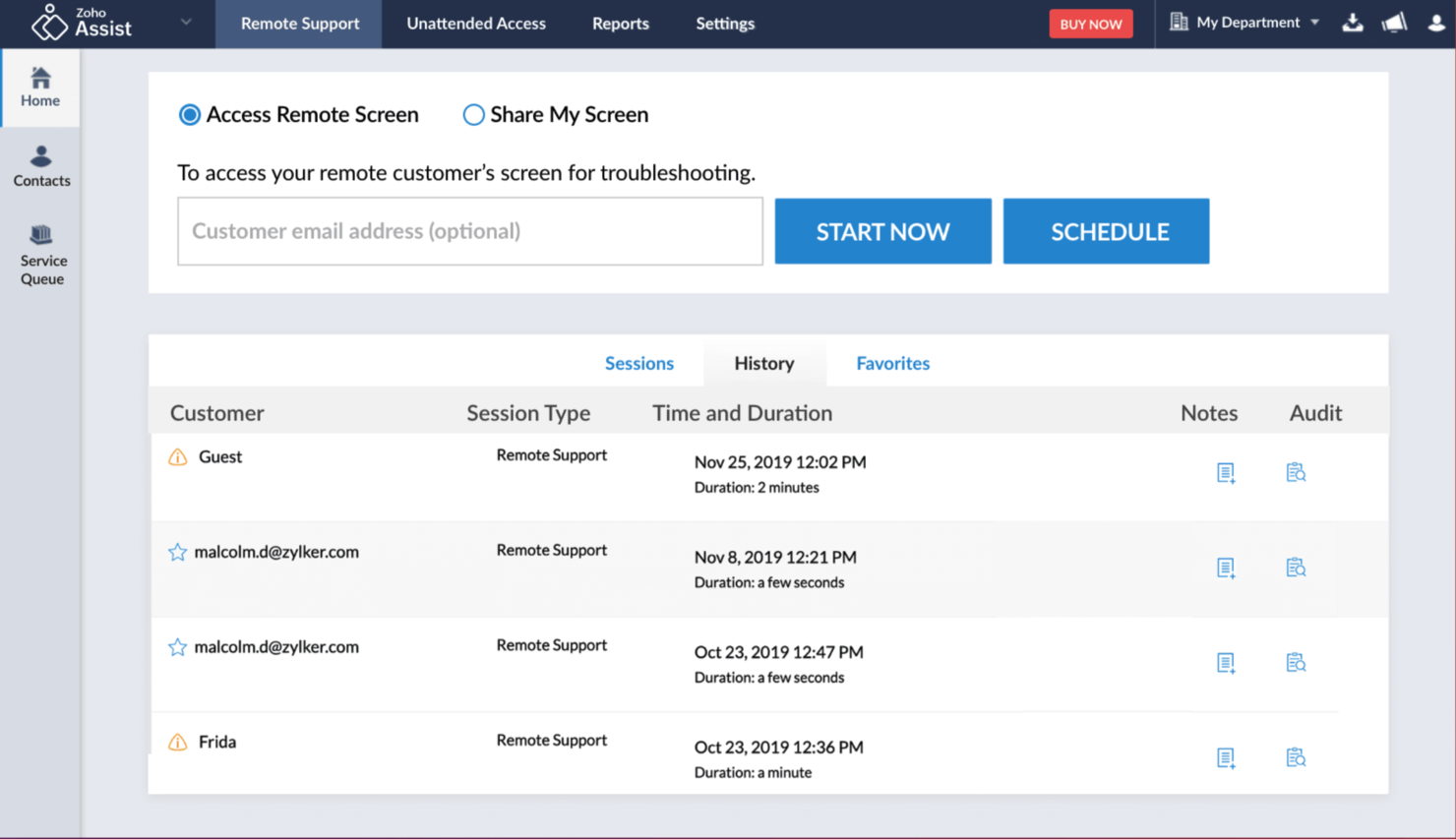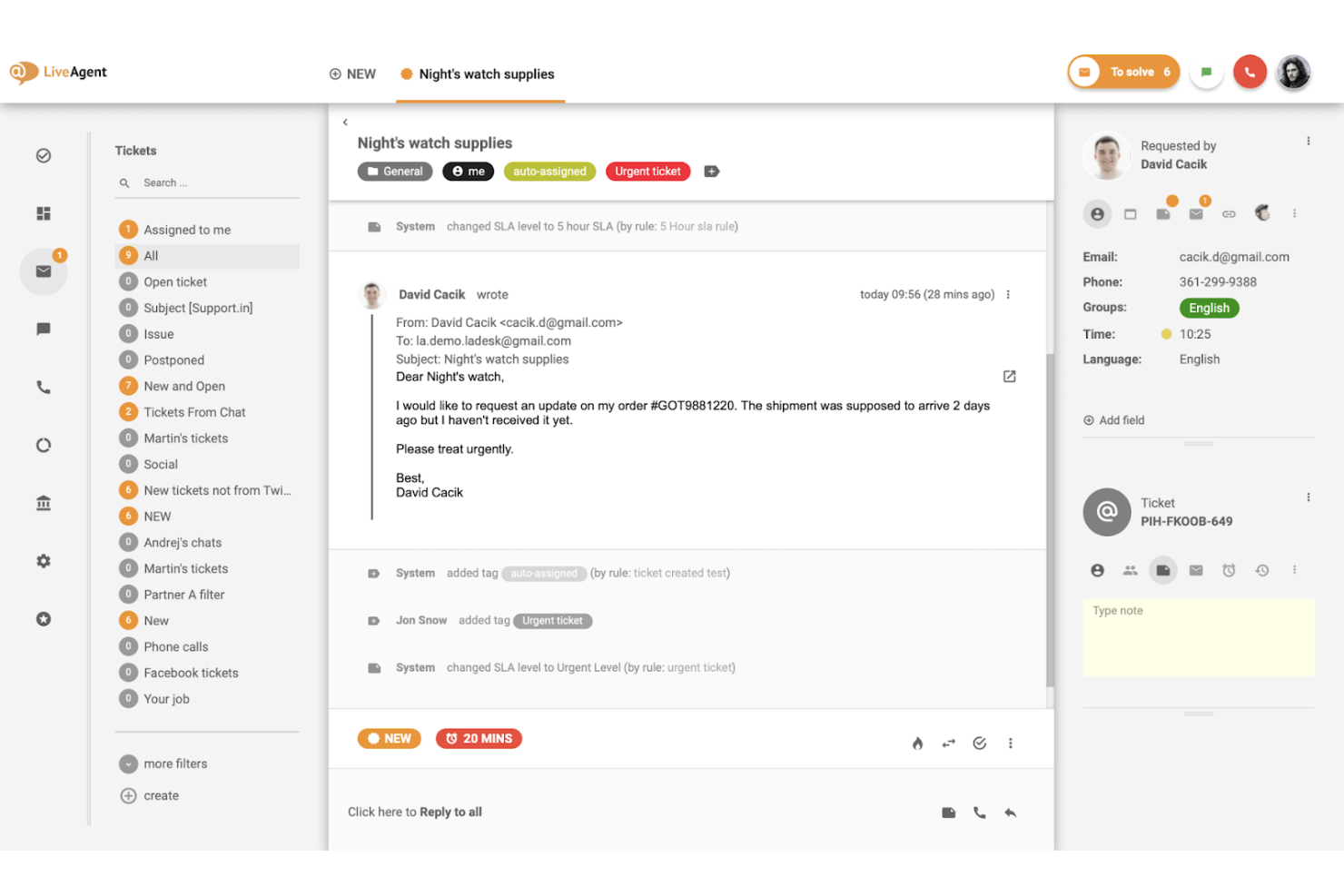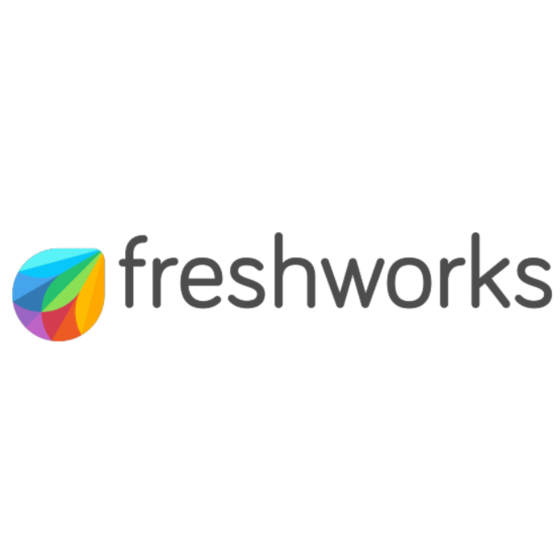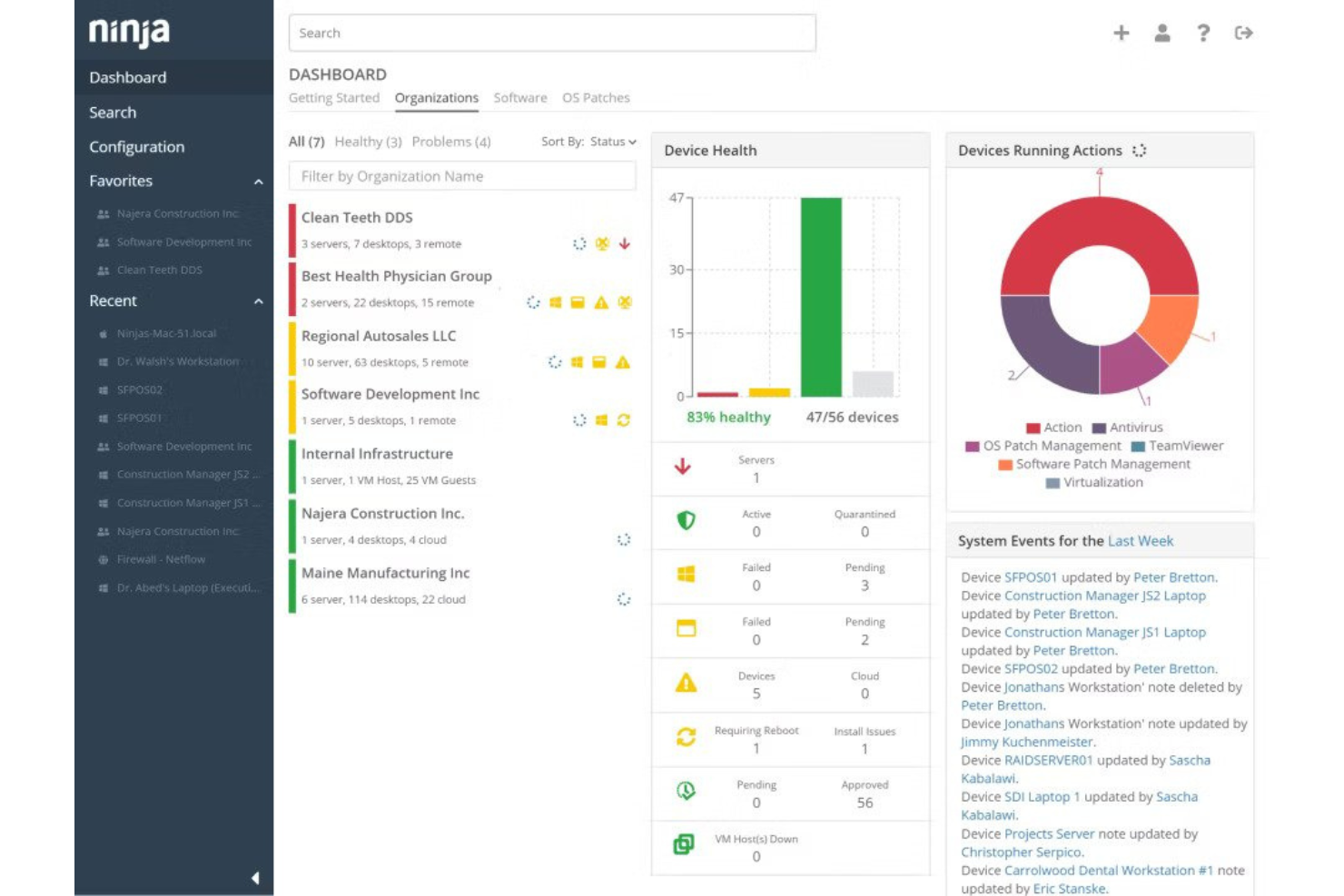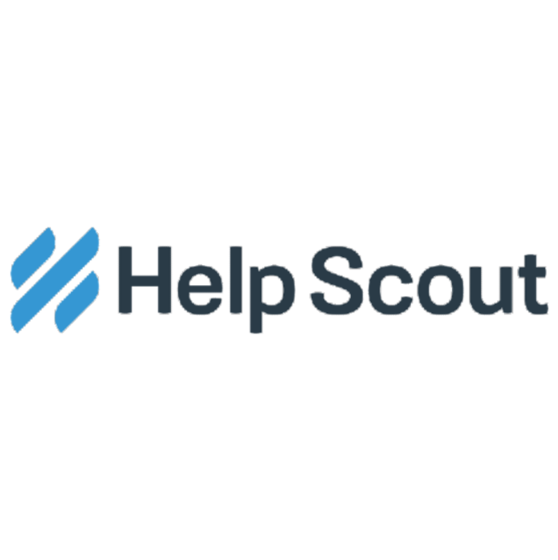10 Best Online Help Desk Software Shortlist
Here's my pick of the 10 best software from the 20 tools reviewed.
With so many different online help desk software solutions available, figuring out which is right for you takes a lot of work. You know you want tools for organizing customer communications, resolving complaints, and managing support teams—but now need to figure out which solution is the best fit. I've got you covered! In this post, I make things simple by leveraging my experience in researching and testing dozens of customer service tools to bring you a shortlist of the best overall online help desk software.
What Is Online Help Desk Software?
Online help desk software is a tool that facilitates communication between customers and support teams by providing features for managing, organizing, and resolving customer queries, issues, and requests. These tools provide a centralized hub for ticket management to enable prioritization and tracking of customer inquiries, knowledge base functionality for documenting answers to common questions, live chat capabilities for real-time assistance, and reporting and analytics tools for monitoring performance metrics.
Typically, help desk software will connect your company to customers through various contact points, such as text support, email, and chatbots, and route the requests to your service desk team. They will give your teams actionable insights for better resource management and solve any bottlenecks in your ticket pipeline. Modern tools also provide analytics and in-depth learning features to help you enhance your help desk capabilities.
Overviews Of The 20 Best Online Help Desk Software
You can use the simple overviews of each tool below to understand how each tool stands out from other online help desk software.
Zendesk simplifies customer experiences across multiple channels and enables businesses to have efficient, personalized customer interactions.
Why I picked Zendesk: When operating a help desk, you’re likely relying on different communication channels to interact with customers, including social media, SMS, and live chat. Zendesk offers omnichannel capabilities that allow your teams to communicate with customers across these channels in a central platform. The platform’s omnichannel features will help your agents meet and help customers wherever they choose to reach out to your organization.
Zendesk works well for businesses of any size that need a solution that will enable agents to track issues, trouble tickets, changes, and assets while providing excellent customer experiences. The software’s ticket management workflows allow your agents to search your customers’ history and get a personalized view of ticket statuses and where you can track ongoing performance. You can use Zendesk to make your team’s work easier thanks to the tool’s built-in scripted responses that the tool automatically sends to customers, making the work easier for your employees and saving them time.
Zendesk Standout Features and Integrations
Features include AI-powered automation, smart triggers, canned responses, SLA management, real-time updates, asset management, omnichannel support, custom views, feedback management, trend analysis, knowledge management, and sentiment analysis.
Integrations include Asana, Google Workspace, HubSpot, Jira, Microsoft Dynamics, Salesforce, Shopify, Slack, Trello, Zoom, and over 1200 more options on the Zendesk Marketplace.
Pros and cons
Pros:
- Robust support features
- Easy to manage ticket routing
- Role permissions work well
Cons:
- Automation rules aren’t explained well
- Limited ticket search queries
Issuetrak is a ticketing software designed to facilitate the creation and tracking of issues, tickets, or cases from multiple channels including email, webforms, and applications. Its capability to serve businesses across various sizes and industries with omnichannel ticket submission makes it a suitable choice for organizations aiming to manage their customer support processes effectively.
Why I picked Issuetrak: I chose Issuetrak as an online help desk software after evaluating its comprehensive features and integrations that cater to various business sizes and industries. Its ability to manage a wide range of issues and automate complaint resolution processes makes it a versatile choice for help desk management. What makes Issuetrak different is its focus on customization and its tailored solutions for omnichannel ticket submission, which are essential for businesses looking to manage customer interactions.
Issuetrak Standout Features and Integrations
Features include omnichannel ticket submission, which allows for the capture of customer interactions across multiple channels, and automatic ticket assignment, ensuring that issues are promptly directed to the right team members. I particularly like the round-robin feature which automatically assigns an incoming issue to the next available agent when you have enabled this feature for a specific group.
Integrations are available with thousands of apps through Zapier (which requires an additional subscription). Additionally, you can build custom integrations using its API and connect the tool to other software in your tech stack.
Pros and cons
Pros:
- Highly customizable system to fit specific needs
- Quick and simple setup
- User-friendly interface
Cons:
- Steep learning curve for new users
- Limitations on field customization
Front is a customer service software with omnichannel help desk management capabilities. It centralizes your customer communications from email, live chat, and SMS in a single place.
Why I picked Front: I chose to include this platform on my list because of its automation features. Not only does it bring together your comms in a shared collaborative inbox, it can also automatically categorize and route incoming requests to the most suitable agent. This helps create a consistent and exceptional customer experience, providing the best possible support from the outset.
To avoid the need to jump in between customer communications and personal threads, the software provides in-discussion private chats. Team members can tag each other and send hidden direct messages right from within the conversation with the customer, helping to keep support active, contextual, and efficient.
Front Standout Features and Integrations
Features include omnichannel communication, collaborative inbox, workflow automation, knowledge base, live chat, chatbots, GDPR and SOC II compliance, custom roles and permissions, and analytics and reporting tools.
Integrations include WhatsApp, Dialpad, Twilio, Intercom, Facebook, Instagram, Slack, Twitter, Asana, HubSpot, Jira, and Salesforce, among others. An API is also available to build custom integrations with.
Pricing for Front starts at $19 per user, per month when billed annually, and a 7 day free trial is available.
Pros and cons
Pros:
- Easy customization and automation
- Multi-channel integration
- Enhances team collaboration
Cons:
- Merging threads can be tricky
- Large feature set creates learning curve for new users
Zoho Assist is a remote support and access solution designed to facilitate secure and reliable assistance to customers through remote access to computers. It distinguishes itself for its focus on security, offering session recording capabilities that cater to businesses prioritizing secure and accountable remote support interactions.
Why I picked Zoho Assist: I chose this software because it offers a secure cloud-based solution that caters to both remote support and remote access needs, ensuring enterprise-grade security across various platforms. What makes Zoho Assist different is its emphasis on customizable features that enable technicians to provide immediate assistance through remote support sessions and manage computers without end-user presence via unattended access.
Zoho Assist Standout Features and Integrations
Features include file transfers during sessions, session recording for accountability, and annotations for clear communication. Additionally, the software offers advanced reporting for tracking support activities, mobile apps for on-the-go support, and API/SDK integration for system compatibility.
Integrations include service desk, help desk, and CRM solutions like Zendesk, Service Now, Slack, MS Teams, Freshdesk, and Jira. Additionally, it supports the integration of remote support capabilities with your Kiosks, Android/iOS Apps, OEM devices, and ITSM solutions.
Pros and cons
Pros:
- Does not require additional software
- Easily invite others to remote sessions
- Cost-effective support
Cons:
- Session recording available in highest tier only
- Storage is priced separately at $5 per 5GB
LiveAgent focuses on simplicity while providing businesses with robust online help desk capabilities.
Why I picked LiveAgent: Like many help desk platforms, LiveAgent provides many features you can use to give your customers excellent experiences from a simple tool. The platform’s easy-to-use interface and intuitive features are similar to what you might find in popular social media platforms. LiveAgent also provides your agents with a universal inbox where they can work on incoming customer tickets, tag and add notes to issues, and automate canned messages.
LiveAgent provides an online help desk platform for small and medium-sized businesses searching for a solution to help them provide excellent experiences to customers around the globe. All of the tools within LiveAgent are easily customizable, which allows you to create and simplify workflows to your requirements. Also, the software offers intelligence tools, including analytics, performance reports, agent rankings, and other data features.
LiveAgent Standout Features and Integrations
Features include agent collision detection, agent ranking, canned messages, automated ticket distribution, chat history, time tracking, ticket export, service level agreements, max queue length, customer feedback and suggestions, and website visitor tracking.
Integrations include CloudTalk, ProjectManager, GetResponse, Mailchimp, Google Analytics, Slack, Post Affiliate Pro, Zapier, Shopify, AWeber, Wufoo, Klipfolio, OpenCart, and Highrise.
LiveAgent costs from $12/user/month when paying monthly or $9/user/month when billed annually. LiveAgent offers a free 30-day trial for new subscribers who sign up under a company email or a 7-day trial for anyone signing up under a free email address.
Pros and cons
Pros:
- Real-time chat ensures efficient data flow
- Easy to navigate
- Tracking pending tickets is simple
Cons:
- Some early implementation issues
- The mobile application needs improvement
Zoho Desk is an online help desk software that supports omni-channel customer service operations and can centralize your email, social media, web chat, and voice calling in one place.
Why I picked Zoho Desk: This software offers a comprehensive feature set for help desk management, including self-service resources and team collaboration tools. But what really stands out about it is its capacity for automating your workflows. This allows you to standardize your support protocols, alleviate your team's manual workload, and onboard new agents quickly.
The workflow builder is a simple, drag-and-drop interface. You can set up specific actions and outcomes, dependent on specified conditions. Your team will have the same set of best practices to follow for common customer requests, saving them time and creating consistency in the customer experience.
Zoho Desk Standout Features and Integrations
Features include ticket management, auto-tag tickets, sentiment analysis, Zia notifications, Zia dashboard, reply assistant, self-service tools, CRM integration, custom functions, SDKs, marketplace and platform, APIs, reports and dashboards, time tracking, multi-brand help center, domain mapping, and user and access management.
Integrations include Twilio, RingCentral, Amazon Connect, Ozonetel, Exotel, Knowlarity, Jive, sipgate, JustCall, ringover, and other software options.
Zoho Desk costs from $20 per user, per month, and a 15-day free trial is available.
Pros and cons
Pros:
- Mobile app for on-the-go access
- Customizable ticketing system
- Clean, intuitive interface, easy to navigate
Cons:
- Limited branding options for customer portals
- Limited reporting on lower tier plans
Freshdesk is a multi-use online help desk software that works well for businesses that operate a call center setting.
Why I picked Freshdesk: After implementing Freshdesk, your call center will get access to various tools, such as a shared inbox, knowledge base tools, and chat capabilities, which make it simple for you and your teams to manage support requests. Freshdesk also provides an incoming call minutes allowance so your customer support agents can handle customer phone calls. If your organization needs a wide range of integrations, Freshdesk will be a great benefit, thanks to its ability to integrate with over 1,000 third-party apps.
Freshdesk helps any sized business implement a help desk in their operations that’s customizable to their requirements. It provides an AI tool it calls Freddy, and what Freddy allows you to do is automate ticket routing to your best agents. Freshdesk has built-in reporting and data capabilities that enable you to refine support processes across multiple communication channels. You can also use the platform’s social media integration to convert brand mentions and messages into tickets your agents can respond to.
Freshdesk Standout Features and Integrations
Features include a team inbox, agent collision detection, SLA management, ticket field suggester, custom ticket status, team huddle, linked tickets, shared ownership, ticket dispatch, intelligent ticket assignment, and time-triggered automation.
Integrations include Google Calendar, Slack, Mailchimp, Google Analytics, Office 365, Freshsales, Dropbox, HubSpot CRM, Microsoft Teams, Harvest, Zoho CRM, Pipedrive, Chargebee, 3CX, Asana, Magento, and Zapier.
Freshdesk costs from $18/user/month when paying monthly or $15/user/month when billed annually. Freshdesk offers a free 14-day trial for new subscribers. The vendor also provides a free forever subscription tier.
Pros and cons
Pros:
- Excellent customer service email organization
- Incredibly intuitive and user-friendly
- Impressive automation capabilities
Cons:
- Some technical issues
- Integrating with existing processes is tedious
NinjaOne helps IT businesses simplify how their teams work by providing robust ticketing automation capabilities.
Why I picked NinjaOne: The platform is another help desk solution that focuses on providing IT organizations with features to enhance customers’ experiences. With NinjaOne, your business will get a comprehensive ticket automation platform to help with manual tasks. The platform will automatically populate critical information into service tickets and use robust automation rules and alerts to create, route, and escalate tickets. This will help your organization ensure every IT technician receives the correct ticket so they can properly utilize their expertise.
NinjaOne is suitable for any sized IT organization that needs online help desk software that will help technicians be quick on their feet when it comes to remediation. NinjaOne provides your businesses with help desk capabilities that facilitate advanced ticketing capabilities by linking the tickets the tool generates to respective end users, devices, and companies. With unified tools and features, your technicians can use the software to provide efficient support from a centralized area.
NinjaOne Standout Features and Integrations
Features include customizable branding, interaction tracking, knowledge base, document storage, IT asset management, omnichannel communication, network monitoring, incident management, real-time chat, and a self-service portal.
Integrations include Supportbench, HaloPSA, ConnectWise, TeamViewer, Okta, OneLogin, Liongard, Narmada, BrightGauge, ScalePad, PagerDuty, Slack, StorageCraft, and SherpaDesk.
NinjaOne offers custom pricing upon request. NinjaOne provides a free trial but doesn’t specify its length.
Pros and cons
Pros:
- Helpful customer support
- Excellent user interface
- Easy to deploy
Cons:
- Updating the software is complex
- Alerts and notifications need work
ProProfs Help Desk helps businesses focus on enhancing customer interactions so everyone has a positive experience.
Why I picked ProProfs Help Desk: The platform provides your business with customer interaction management capabilities that enable your agents to respond to customer queries, offer 24/7 assistance, and connect with them. ProProfs Help Desk helps your agents offer promptness, personalization, empathy, and assurance when interacting with customers. You can use the platform to get an overview of past customer interactions and activities so your agents can provide a personal touch to future conversations. For more effective customer interaction management, you can use ProProfs Help Desk’s team collaboration capabilities to help your agents work together and make customers happy.
ProProfs Help Desk works for organizations of all sizes that need a solution catered to the growing needs of customers within their industries. It’s a cloud-based ticketing system that is well known for its shared inbox feature, where your agents can access, view, and assign tickets to the right team member while working in a collaborative space. Your managers can use ProProfs Help Desk to prioritize, label, and mark tickets that require immediate attention.
ProProfs Help Desk Standout Features and Integrations
Features include shared inboxes, notification templates, customizable agent availability, ticket exporting, team management, ticket history, roles and permissions, internal chat, omnichannel support, SLA management, real-time chat support, and automated responses.
Integrations include Salesforce and Microsoft Dynamics CRM.
Pros and cons
Pros:
- Incredible customer support
- Ensures excellent customer experiences
- Easy-to-use interface
Cons:
- A small number of integrations
- No API is available
Help Scout provides an all-in-one help desk software that enables businesses to prioritize customer satisfaction.
Why I picked Help Scout: The platform is an all-in-one solution that provides you with nearly every feature you need to simplify help desk processes. Help Scout helps you and your support agents manage customer support requests from a centralized location. So, your customers can reach your company using the channel they prefer, and your team can handle their requests from a single source.
Help Scout helps businesses of any size that need online help desk software that provides the necessary tools to deliver excellent customer experiences. The platform comes with pre-built dashboards out-of-the-box, so you can see your team’s performance immediately. You can also create custom reports within Help Scout that will allow you to focus on the metrics that matter most.
Help Scout Standout Features and Integrations
Features include a knowledge base, queue management, workflow management, email management, live chat, performance metrics, a self-service portal, network monitoring, real-time chat, IT asset management, document storage, and automated routing.
Integrations include HubSpot, Jira, Salesforce, Slack, Mailchimp, Freshbooks, CircleLoop, Olark, Shopify, Pipedrive, Infusionsoft, Mixpanel, WooCommerce, Aircall, Constant Contact, Magento, Campaign Monitor, and Zapier.
Help Scout costs from $25/user/month when paying monthly or $20/user/month when billed annually. Help Scout offers a free 15-day trial for new subscribers.
Pros and cons
Pros:
- Straightforward navigation and user interface
- Easy to organize and track issues
- Simple to get started
Cons:
- Reporting can be limited
- The mobile app needs improvement
How I Selected The Best Online Help Desk Software
Perhaps you're wondering how I selected the best online help desk software for this list? To build this top 10 list, I evaluated and compared a wide range of online help desk software with positive user ratings.
After determining my long list of top choices, I further honed my list by using the selection criteria below to see how each platform stacked up against the next one. I also drew on my years of experience as a CX specialist to pinpoint the features that add a lot of value.
Selection Criteria
Here’s a short summary of the main selection and evaluation criteria I used to develop my list of the best online help desk software for this article:
User Interface (UI):
Too much complexity in a platform’s user interface can be misleading. You should focus on implementing a system that makes it easy to locate and use the features your agents need most. When choosing the online help desk software for this list, I look for tools that provide a simple user interface and a demo or free trial that will allow you to experience the UI for yourself.
Usability:
The help desk software’s usability is a crucial criterion when deciding the right tool for your organization. A platform that’s easy to implement and use will help decrease the amount of training your teams will need to understand the tool. I look for help desk tools that provide easy-to-use features that will enhance your team’s productivity.
Software Integrations:
Software integrations will enhance help desk adoption among your team since they can connect the tool with the tech stacks they’re already using. Also, if your services include hardware support or device maintenance, or your teams handle any type of hardware in any way, it’s best to implement a help desk solution that can integrate with IT asset management systems. So, I look for online help desk software that can synchronize with various platforms and provide a free API that will allow you to create custom integrations.
Pricing:
Typically, online help desk software offers businesses different pricing options. The most common being pay-per-ticket or pay-per-user. When shopping around for options to add to this list, I look for tools that provide the most significant number of features for a reasonable price to help you get a return on your investment. Also, some vendors provide an open-source solution, which means the tool will be free, making it beneficial for smaller businesses or startups.
The Best Online Help Desk Software Summary
| Tools | Price | |
|---|---|---|
| Zendesk | From $19/user/month (billed annually) | Website |
| Issuetrak | From $26/agent/month | Website |
| Front | From $19/user/month (billed annually) | Website |
| Zoho Assist | From $12/month | Website |
| LiveAgent | From $9/user/month (billed annually) | Website |
| Zoho Desk | From $20/user/month | Website |
| Freshdesk | From $18/user/month | Website |
| NinjaOne (formerly NinjaRMM) | Customized price upon request | Website |
| ProProfs Help Desk | From $30/user/month | Website |
| Help Scout | From $20/user/month | Website |

Compare Software Specs Side by Side
Use our comparison chart to review and evaluate software specs side-by-side.
Compare SoftwareOther Options
Here are a few more options that didn’t make the best online help desk software list:
- HelpDesk
Best for team collaboration
- Hubspot Service Hub
Best CRM capabilities within a help desk platform
- Front
Best shared team inbox software
- ManageEngine ServiceDesk Plus
Best for IT service management
- Salesforce Service Cloud
Best for personalizing interactions with AI
- Bitrix24
Best open-source help desk tool
- Intercom
Best for resolving queries without human support
- Gmelius
Best for third-party integrations
- Tidio
Best live chat widget
- SolarWinds Service Desk
Best asset management solution
People Also Ask
Here are a few popular questions answered for your convenience!
What are the Key Features of Online Help Desk Software?
What Other CX Resources Do I Need?
Choosing the Best Online Help Desk Software For Your Team
Implementing a new help desk platform will be a significant investment for your customer support team, customers, and business. After reading this list of the best online help desk software, you’ll find that many options offer the same common features. Even so, you should always consider the aspects I listed above that make them unique despite these commonalities. A long feature list is good to have, but remember to make a choice with a broader framework in mind.
Remember, the cost of not focusing on enhancing your customer’s experience with your business can be high. So, taking the time to make informed decisions will be a significant benefit for your organization and customers. To help with this, we put together the CX Lead newsletter with the latest customer experience advice and tool list that will help you encourage your customers to keep coming back. Sign up today and get the latest information directly in your inbox.

